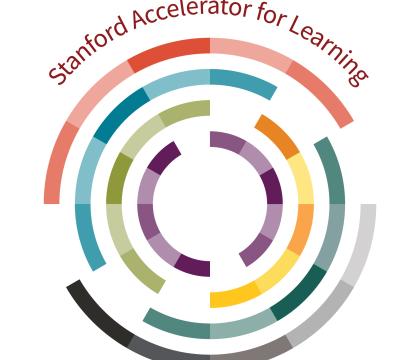PWHOPL
The Stanford Accelerator for Learning, a university long-range project, creates effective learning solutions using the latest advancements in technology, data, learning, and neurosciences. We collaborate across disciplines and with partners to bring scalable and equitable solutions to all learners.
The Workforce and Adult Learning Initiative is one of five initial focus areas within the Stanford Accelerator for Learning. PWHOPL is an acronym for People Who Help Other People Learn and includes but are not limited to mentors, managers, section leaders, attending physicians, community health workers, tutors, early childhood education workforce, coaches, classroom paraprofessionals, and more – anyone who teaches but has not had the benefit of the 1,000s of hours of training that professional teachers receive.
The Stanford Accelerator for Learning seeks to fund research that leads to new understanding of how to optimize rapid capability development and fosters ways to use technology to support PWHOPL to be more effective at helping other people learn. We request proposals for projects and learning technologies that support adult learners who have teaching responsibilities but often receive minimal formal education if at all.
In most cases, PWHOPL do not have the opportunity or time to learn how to teach well, and the costs of developing their teaching capability can be prohibitive. At the same time, PWHOPL are often steeped in the contexts and cultures where learning takes place, so they bring unique strengths. If we can find ways to support PWHOPL, there could be a tremendous multiplier effect in benefits to learners of all ages. Proposals need to recognize that PWHOPL have many other responsibilities, so the amount of time available for supporting them to build knowledge and skills will normally be brief. This raises an interesting question of how to optimize rapid capability development given that it will be impossible to cover the range of issues the PWHOPL are likely to encounter. For example, do some approaches put PWHOPL on a trajectory of continued learning, even after the intervention is complete?
Competitive proposals will be sensitive to the highly contextualized nature of PWHOPL as well as the constraints on the time available for learning. Innovative uses of technology will receive favor as will proposals that include data collection and the eventual demonstration of impact.
- Optimize rapid PWHOPL capability development
- Use technology to support PWHOPL to teach more effectively
- Unique strengths of PWHOPL steeped in context and culture of their learners
This RFP is open to teams that include at least one Stanford PI-eligible faculty, student, research staff, or post doc working in partnership with other faculty, students, research staff, post docs at Stanford. We also include collaborations with external organizations or institutions relevant to the project. These may include community-based organizations, businesses, non-profits, schools, post-secondary institutions, higher education, and other organizations interested in advancing learning opportunities in this area. Should there be collaboration with external entities receiving funds as subrecipient, the project will require a Stanford faculty who is eligible to serve as a Principal Investigator on the project. See guidelines on PI Eligibility on the Stanford Research Policy Handbook Chapter 2.1.
Faculty selected to receive funds will be enrolled as Faculty Affiliates with the Stanford Accelerator for Learning, opening the doors to additional engagement opportunities and resources. In addition to direct funding, applicants may also request accelerator studio support services delivered through the Accelerator Studio.
The Accelerator Studio provides support services to help guide the design of effective, scalable solutions anchored in the rapidly growing research from the learning sciences. For example, an instructor with a great learning innovation may not have experience researching its effects on learning. Alternatively, a faculty member may have an idea for a new digital learning tool or application, but not have access to technologists to bring it to life. The Stanford Accelerator for Learning is equipped to provide additional support from Accelerator Studio staff with relevant expertise. If awarded a grant, the specific needs and allocation of support will be determined through consultation with the Accelerator Studio.
Accelerator Studio services include:
- Technology support. Ideation, storyboarding, prototyping, interface design, instructional design, app development and testing, cloud services, and media production.
- Research support. Research conceptualization and measure design, execution of quantitative and/or qualitative research in the lab or field, data use agreements and storage, guidance for working with Stanford’s Institutional Review Board.
- Science and design of learning. Evidence-based strategies for improving learning experiences, as well as guidance on avoiding common mistakes that interfere with learning.
- Partnership support. Finding and helping to broker prospective participants and partner organizations outside of Stanford (e.g., schools, community partners, tech companies, etc.).
Smaller projects up to 5K - usually lead by students
Medium projects up to 25K - usually lead by research staff, or individual faculty.
Large projects - up to 75K - Note for this award level, we strongly encourage applicants to utilize a multi-PI approach where at least two of the lead investigators are from different departments or schools at Stanford.
Allowable expenses include:
- GSE Stanford student or postdoc research assistantships
- Support for research staff or partners to help develop, operationalize, and/or use the research.
- Expenses that support the research - examples include costs related to technology, data management, research tools, transportation, operations, interviews, etc.
- Funding for External Organization with a Stanford PI as lead on the project. Name and Authorized Institutional Contact must be included for External Organizations.
